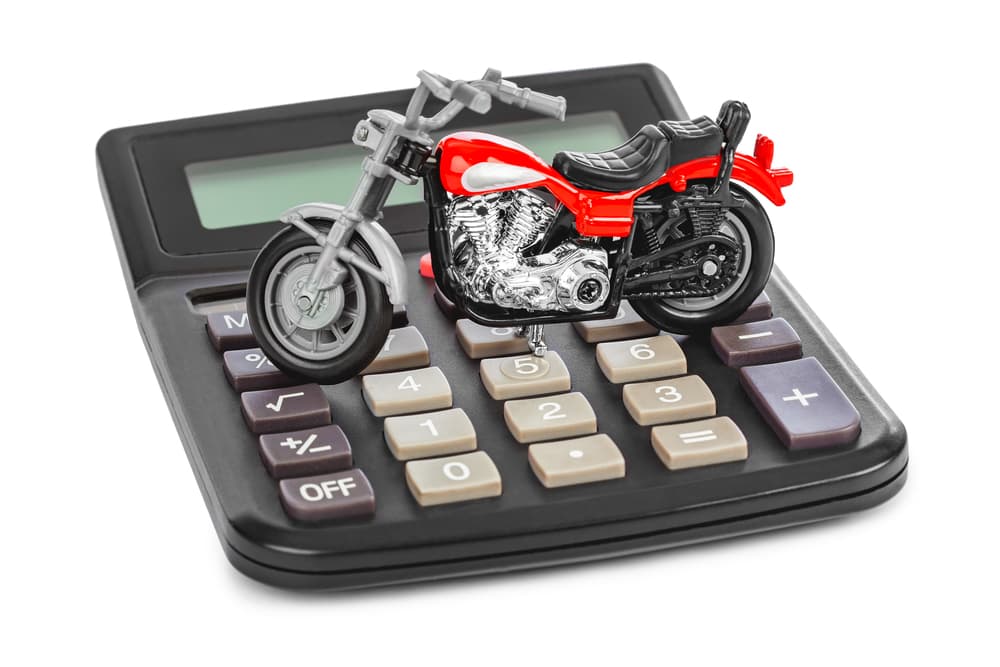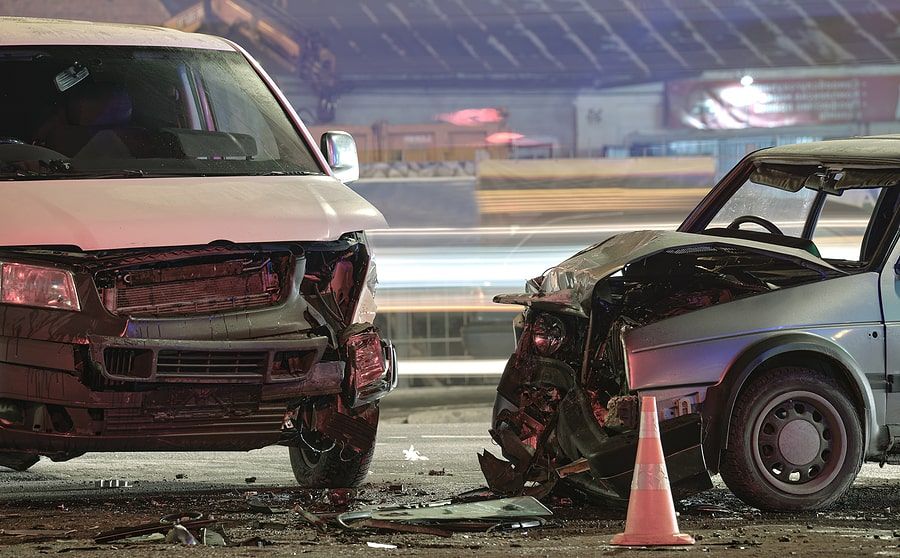In a world where speed is synonymous with thrill and excitement, motorcycles symbolize freedom for many. The harsh reality is, however, that the exhilaration of riding a motorcycle comes with a higher risk of accidents and injuries.
When such misfortune occurs because other drivers refused to drive safely, a motorcycle accident attorney in Riverhead can explain the financial compensation that you deserve.
Understanding Motorcycle Accidents
Before we move on to the specific factors that shape the financial outcome of a motorcycle accident claim, let’s explain the nature of such accidents.
What Causes a Motorcycle Accident?
Motorcycle accidents occur due to another driver’s reckless driving, speeding, failure to adjust to the weather, roadway defects, mechanical failures, and driver inattention. The lack of protection compared to cars or trucks tends to disproportionately harm the motorcyclist.
The Effects of Motorcycle Accidents on the Victims and Their Families
A motorcycle accident may involve physical injuries, from minor abrasions to life-threatening conditions. The ramifications often extend to significant emotional turmoil and financial stress.
You may face substantial medical bills, rehabilitation costs, and loss of income during your recovery. The physical pain, pressure of medical treatments, and potential for permanent disability can exacerbate the emotional trauma.
Your loved ones often shoulder the burden of care and coping with the psychological result of an accident. You need appropriate financial compensation after such an event.
Factors That Determine a Motorcycle Accident Payout
The financial compensation after a motorcycle accident isn’t a random figure, nor does it solely depend on the nature of the injury. Multiple factors determine the payout you can expect to receive.
The Severity of the Injury
One of the most significant determining factors is the injuries’ severity. Minor injuries that require minimal medical intervention typically result in lower compensation than serious injuries necessitating extensive treatment and rehabilitation or permanent disabilities. Other damages, such as loss of income and your future earning capacity, also depend on the severity of your injury.
The At-Fault Party
Determining fault, or liability, is critical in motorcycle accident payouts. In cases where the motorcyclist is entirely at fault, the other party’s insurance company may not pay out. If the other party is at fault, however, the payout’s size may increase, particularly in cases of reckless or negligent driving.
Insurance Coverage Availability
The insurance coverage of the motorcyclist and the at-fault party plays a vital role in determining the payout. The parties may have full insurance, inadequate coverage, or no policy at all.
Underinsured or uninsured motorist coverage typically protects you if your accident involves a driver with insufficient coverage or no auto insurance.
The Condition of The Motorcycle
If the motorcycle was in poor condition or had safety issues, this could reduce the payout.
Legal Representation
The experience and negotiation skills of your legal representative may have a substantial influence on the final payout. Statistics suggest that accident victims who hire attorneys generally receive higher settlements. A competent motorcycle accident lawyer can build a strong case, challenge insurance company tactics, and negotiate settlements effectively.
Calculating Motorcycle Accident Payouts

Due to the many factors determining motorcycle accident payouts, calculating a final figure is not straightforward. This process requires careful consideration and skilled negotiation.
The Payout Calculation Process
Calculating the payout for a motorcycle accident is complex, as it involves multiple elements. Considerations include the nature and severity of the injuries, the extent of medical expenses, the effects on the victim’s life, and the determination of liability.
Compensation will also reflect factors such as medical treatment and rehabilitation costs, loss of income due to missed work, and future medical care expenses.
Typical Components in a Payout
Payouts for motorcycle accidents generally comprise economic and noneconomic damages. Economic damages are the measurable costs resulting from the accident, such as medical bills, property damage, and lost income.
Noneconomic damages are more subjective and include pain and suffering, emotional distress, and loss of enjoyment of life. You may also be eligible for punitive damages, which aim to penalize the at-fault party and deter similar conduct in the future.
The Role of Negotiation
Negotiations usually determine the final payout for a motorcycle accident. It involves both parties’ insurance companies, and a fair resolution requires skilled negotiation. A competent lawyer has the knowledge and experience to effectively advocate for your best interests and secure the compensation you deserve.
Payouts for Motorcycle Accidents
Now that you understand the factors determining a motorcycle accident payout, you may wonder what the average settlement for such accidents is.
An average payout doesn’t apply to any situation, as each accident is unique. These figures, however, provide an estimate and help you to set realistic expectations.
Average Payouts
The average payout for a motorcycle accident can vary significantly depending on the characteristics of the accident. Settlements can range from a few thousand dollars for minor accidents to millions in cases of severe injuries or wrongful death. High payouts often result from long, complex litigation, and prior payments do not guarantee similar outcomes.
Payouts Based on Severity of Injury
The severity of injuries plays a direct role in determining the payout after a motorcycle accident. Incidents resulting in minor injuries, such as bruises or scrapes, tend to have lower payouts, often only covering medical expenses and minor property damage.
Accidents causing severe injuries with long-term ramifications, such as brain damage or paralysis, on the other hand, tend to yield higher payouts. These compensate for ongoing medical treatment, rehabilitative care, loss of income, and the pain and suffering the victim endured due to the accident.
The Importance of Fault
Establishing fault in a motorcycle accident is crucial to determining compensation for motorcycle accident victims. The payout is often higher when the victim is not at fault and the at-fault party’s insurance provider must cover the injured party’s damages.
The Impact of Insurance Coverage
The payment amount also depends on the insurance coverage of the victim and the at-fault party. If both parties have comprehensive insurance, the payout is generally higher, as more sources for compensation are available.
If either party has inadequate insurance, the insurance policy’s maximum coverage will limit the payout. Victims may need to rely on their insurance and uninsured or underinsured motorist coverage to make up for the deficiency.
Navigating Motorcycle Accident Claims
The first step in securing a fair motorcycle accident payout is timely reporting the accident.
Alert local law enforcement immediately after an accident to set the process in motion. Police reports contain vital evidence, such as the officer’s impartial account of the scene, which can determine liability. Most insurance companies also require the prompt reporting of an accident to establish a claim.
The Role of Evidence
Evidence plays a vital role in establishing the facts of the accident and can have a significant influence on the payout amount. Critical forms of evidence can include photographs of the accident scene, damage to the involved vehicles, visible injuries, and roadway conditions. Witness statements, surveillance footage, and expert testimonies can also strengthen your claim.
The Importance of Medical Documentation
Medical documentation is critical to substantiating a motorcycle accident claim. These documents provide a detailed description of your injuries, the required treatment and its cost, and the projected medical costs for future treatments.
Medical records can prove the direct effects of the accident on your health and life, which you need when negotiating a fair settlement.
Meeting Deadlines
While gathering strong evidence and seeking adequate medical treatment, never overlook the procedural requirements of making a claim.
Every state has a statute of limitations, a deadline by which you must file a legal claim following an accident. The exact time frame can vary from one state to another, typically ranging from one to six years.
Missing this deadline could result in the dismissal of your claim, regardless of the merits of your case. Take timely action, initiate your claim promptly, and file before the statute of limitations expires.
The Role of a Legal Professional
An experienced legal professional can guide you through the motorcycle accident claim process while you recover from your injuries.
They can gather the necessary evidence, handle all communication with insurance companies, negotiate a fair settlement, and represent you in court if necessary. Legal representation can provide peace of mind, allowing you to focus on recovery while your attorney handles your claim.
Navigating a motorcycle accident claim involves many crucial steps, including reporting the accident in a timely manner, gathering robust evidence, obtaining thorough medical documentation, and seeking skilled legal representation.
Following these steps can significantly increase your chances of securing a fair and just payout. Remember that each claim is unique, and the specific circumstances surrounding your situation will determine the outcome.
Understanding Average Motorcycle Accident Payouts and Moving Forward
If you are the victim of a motorcycle accident, you don’t need to know the average payout, as the settlement you receive will depend on your accident, not any averages.
Instead, understanding the process, the factors at play, and what to expect can reduce uncertainty and stress.
This knowledge prepares you to navigate the often daunting process of filing a claim and negotiating a fair settlement that adequately covers medical expenses, compensates for lost income, and accounts for your pain and suffering.
Understanding motorcycle accident payouts isn’t just about gaining insight into the financial compensation you may deserve. It arms victims and their families with knowledge, empowering them to take control and navigate the complex legal landscape following a motorcycle accident with confidence and peace of mind.
Do not wait to get the legal advice and guidance you need. Contact an experienced Riverhead personal injury lawyer today for a free case review.








